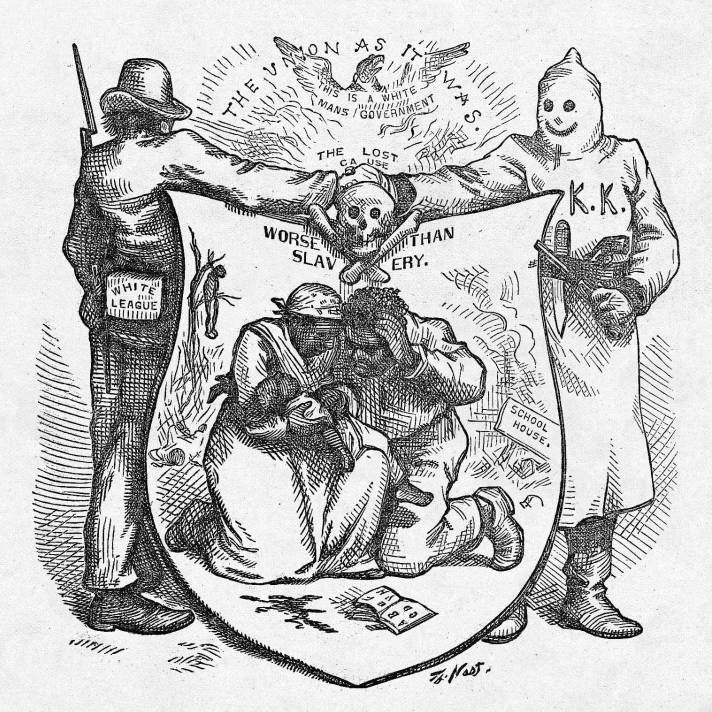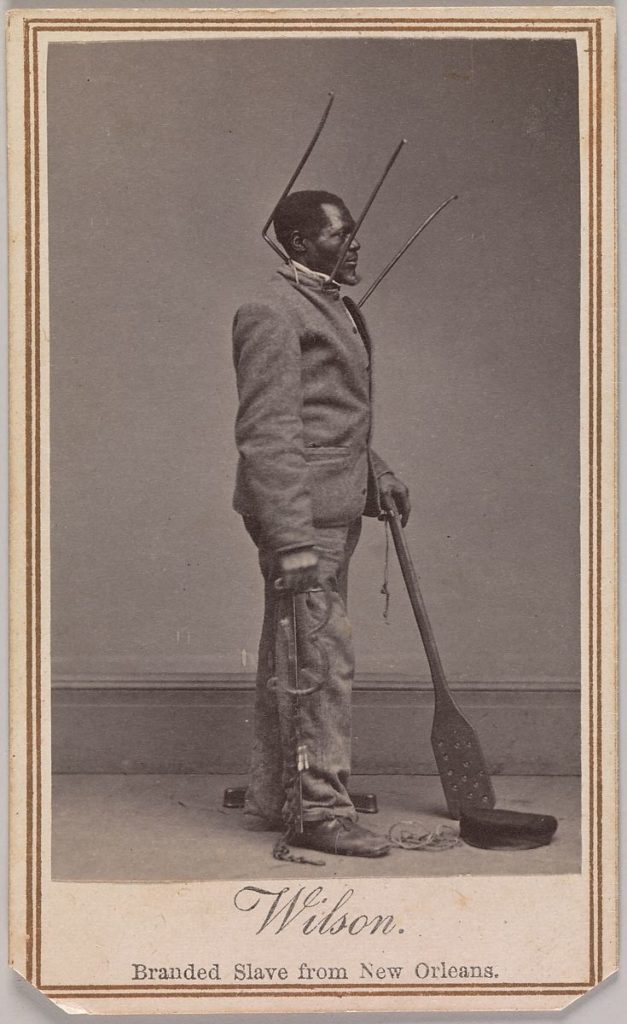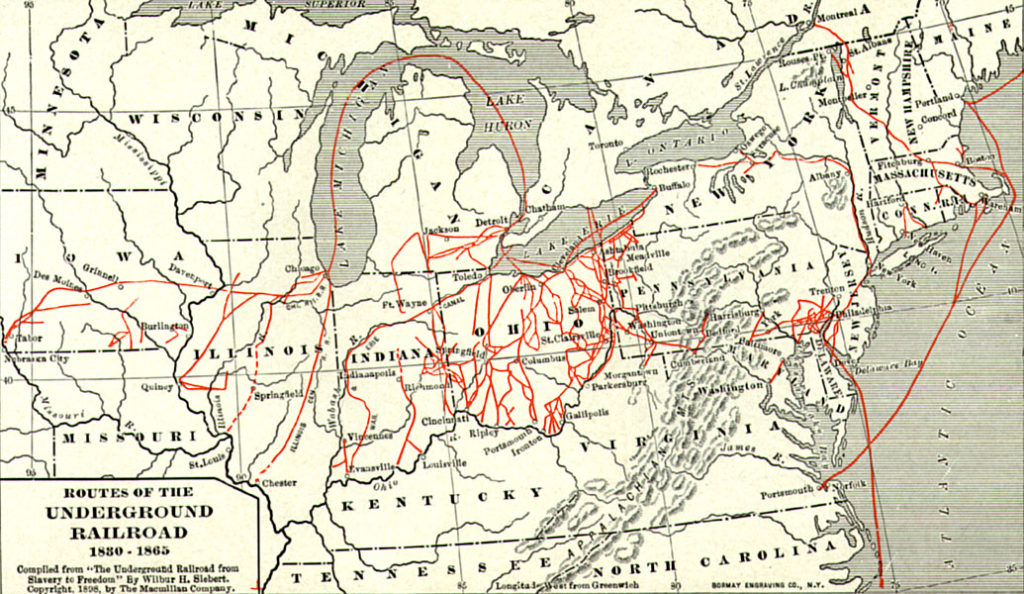Fourth in a series from AAHAWM honoring Black History Month
 The Reconstruction Era, which lasted from the end of the Civil War in 1865 to 1877, was a period of significant change and progress for African Americans. The Union army had defeated the Confederacy and the 13th, 14th and 15th amendments were added to the Constitution, which abolished slavery and granted citizenship and voting rights to African Americans. This was a time of hope and optimism for Black Americans who had been enslaved for centuries.
The Reconstruction Era, which lasted from the end of the Civil War in 1865 to 1877, was a period of significant change and progress for African Americans. The Union army had defeated the Confederacy and the 13th, 14th and 15th amendments were added to the Constitution, which abolished slavery and granted citizenship and voting rights to African Americans. This was a time of hope and optimism for Black Americans who had been enslaved for centuries.
However, the Reconstruction Era was also marked by the rise of Black Codes, laws passed by Southern states to restrict the rights and freedoms of African Americans. These laws were designed to maintain white supremacy and control the labor of formerly enslaved people. The Black Codes varied from state to state, but they often included provisions that criminalized certain behaviors such as vagrancy, loitering, and not having employment. These laws were used as a tool to discriminate and oppress Black Americans and return them to a state of near-slavery.
The Black Codes were met with resistance from newly freed African Americans and the federal government. The Civil Rights Act of 1866 and the 14th amendment were passed to counteract these discriminatory laws. The Civil Rights Act of 1866 granted citizenship and equal rights to all people born in the United States, regardless of race, color, or previous condition of slavery. The 14th amendment granted equal protection under the law to all citizens and prohibited states from denying any person “life, liberty, or property, without due process of law.”
Despite these efforts, the Black Codes persisted, and their legacy can still be seen in the systemic discrimination and inequality that African Americans continue to face today. The fight for civil rights and equality for Black Americans did not end with the abolition of slavery or the passage of the 13th, 14th, and 15th amendments. It was a continuous struggle that continues to this day.
In honor of Black History Month, it is important to remember the sacrifices and struggles of those who fought for the rights and equality of African Americans during the Reconstruction Era, and to acknowledge the ongoing fight against discrimination and inequality. For further readings:
- “The Rise and Fall of the Black Codes” by the National Park Service (https://www.nps.gov/articles/the-rise-and-fall-of-the-black-codes.htm)
- “The Black Codes” by the Library of Congress (https://www.loc.gov/teachers/classroommaterials/presentationsandactivities/presentations/timeline/reconwar/codes/)
- “The Civil Rights Act of 1866” by the National Archives (https://www.archives.gov/historical-docs/civil-rights-act-1866)
- “The Southern ‘Black Codes’ of 1865-66” by the Consitutional Rights Foundation (https://www.crf-usa.org/brown-v-board-50th-anniversary/southern-black-codes.html)


